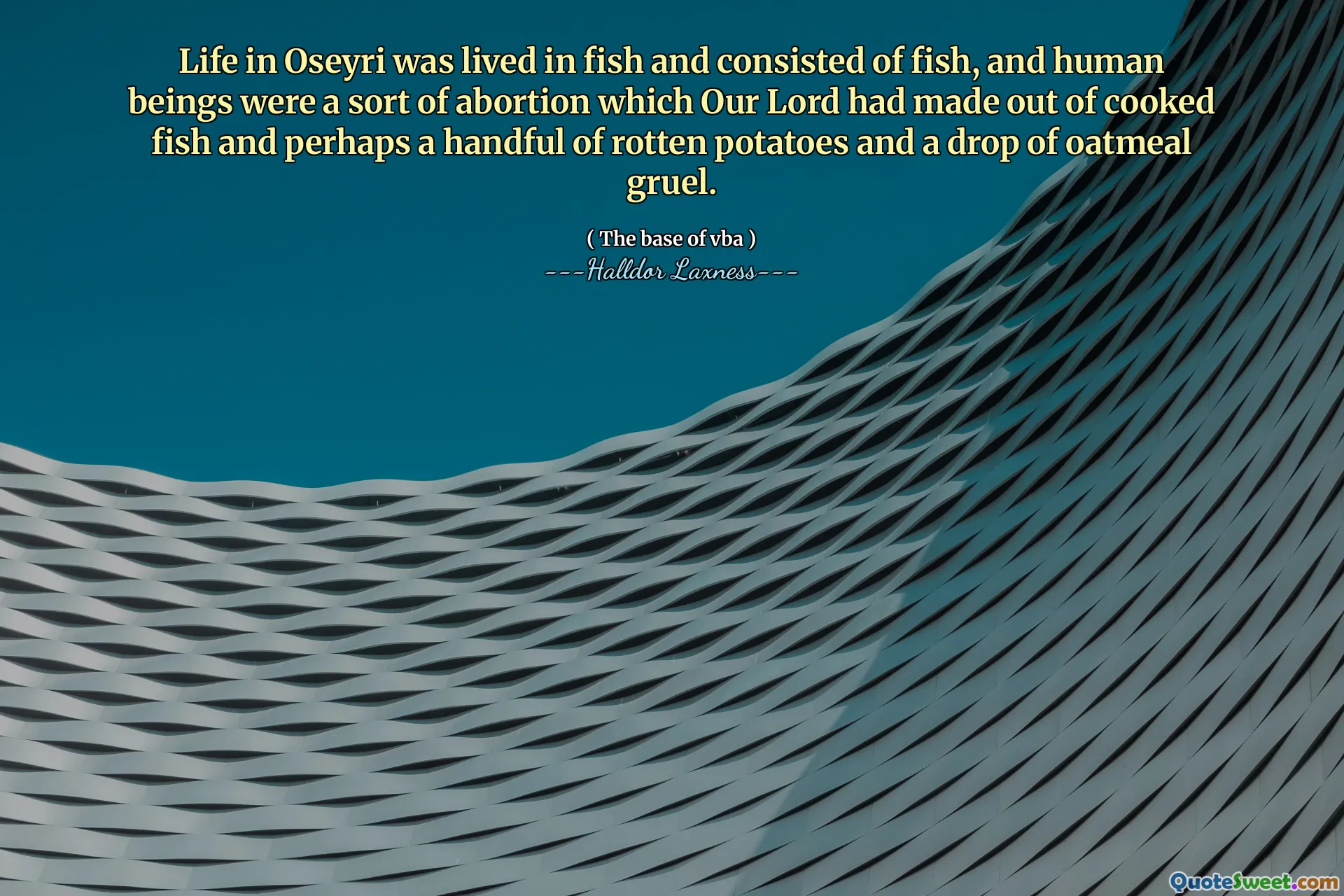
Life in Oseyri was lived in fish and consisted of fish, and human beings were a sort of abortion which Our Lord had made out of cooked fish and perhaps a handful of rotten potatoes and a drop of oatmeal gruel.
This quote offers a vivid and somewhat surreal portrayal of existence in Oseyri, a place where life is inextricably bound to fish, not just as sustenance but as a foundational essence of being. The imagery evokes a stark relationship between humans and their environment, highlighting the dependency on the natural world — specifically fish — as central to their survival and identity. The description of humans as "a sort of abortion" crafted from cooked fish and bits of decayed food invites a reflection on both the fragility and peculiarity of human life, suggesting an imperfect or unintended creation. This could be seen as a metaphor for the human condition, emphasizing themes of impermanence, the mingling of purity and decay, or existential absurdity. The language conjures a raw and almost grotesque realism that forces the reader to confront the humble and perhaps unpleasant origins and nature of humanity in this setting. It's a poignant commentary on the interconnectedness of living beings with their environment, as well as on the theological or philosophical view of human existence as a complex, possibly flawed emergence from ordinary and unexpected elements. Such a depiction challenges romantic or idealized notions of human life, urging us to recognize the often gritty, unadorned realities that underlie our existence. It also stimulates thought about creation and the essence of life in a poetic yet unsettling manner, provoking deeper consideration about the origins and the nature of humanity's relationship with the world around it.






